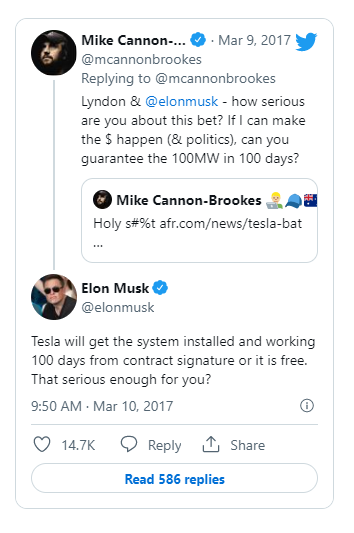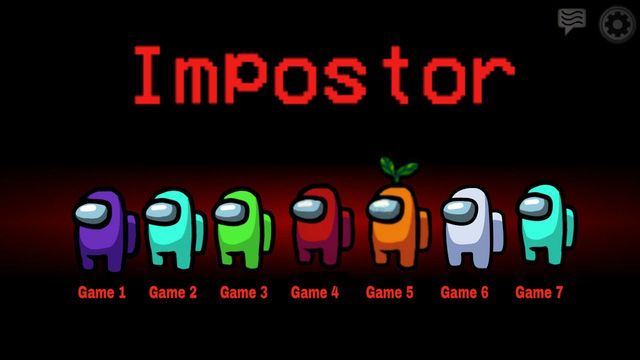Taking sleeping pills every night because I always think I’m not number 1, the suffering of great people is not understood by everyone
Billionaire Elon Musk is a famous person who works hard up to 17 hours a day. The media was surprised to hear the Tesla founder confessing about the difficult time when he had to take sleeping pills every night, and worked hard in the early days of his career. But even after becoming a billionaire, Elon Musk still destroys his health to work.
Even in 2014, this Tesla founder said his schedule was closed until 1 year later, thereby showing the intensity of hard work of the second richest person in the world.
Recently, Elon Musk bought more Twitter even though he is managing 4 companies and Tesla is doing well despite the challenges. So why is this billionaire always trying to expand his empire when the labor intensity is too stressful?

Tired but Elon Musk still tries to buy a new business
Ignoring conspiracy theories about acquiring “soft power” from social networks, many psychologists believe that Elon Musk is suffering from “Impostor Syndrome”, which is a common psychological syndrome. found in people who tend to doubt their own achievements.
In fact, not only Elon Musk, a series of other billionaires or successful people also have this syndrome without even knowing it.
Have you ever wondered why Mark Zuckerberg wakes up every morning not to celebrate Facebook’s 2.8 billion users, but to wonder why more than half of the world isn’t using his social network? Then, just like those worries, Tiktok rose to threaten Facebook’s position, causing this big man to establish Meta.
Similarly, Jeff Bezos resigned as CEO of Amazon, but not because of rest and family time, but to plunge into a new “universe” battle with billionaire Musk.
The story sounds wrong when billionaires who have been extremely successful but refuse to rest and enjoy themselves, start to expand their empires. However, for those who always doubt their achievements, or are always afraid of losing their inherent position like Mark Zuckerberg, Elon Musk or Jeff Bezos, the story of “stop growing is dead” becomes too easy to understand.
Often, the illness cycle of imposter syndrome begins with a desire to be special, the best, or to be excellent at everything. Then when success comes and is applauded by everyone, they begin to feel pressured and develop a fear of failure, fear of not surpassing their own success, fear of being denied their ability and lowering their praise. .

Elon Musk accepts the challenge of fixing South Australia’s electricity network
Since then, people with this syndrome suffer from depression, the illusion that they are not doing well enough, and lose the qualities of resoluteness, confidence but prudence, and calculation, which are the initial strengths of success. .
In March 2017, Elon Musk got angry on Twitter when he was challenged to fix the power grid in Australia within 100 days. But 5 years have passed and the challenge has become a joke on social networks.
Apparently, the fear of failure and rejection makes Elon Musk sometimes too hasty. The self-confidence but integrity of this billionaire has been transformed into funny challenges on social networks.
70% of the population has it
The term imposter first appeared in 1978 in the topic “Impostor syndrome in successful women” by Dr. Pauline R. Clance and Suzanne A. Imes.
This study shows that women who are successful in life and career tend to have the illusion that everything they achieve is due to luck, or simply because people overestimate their abilities and intelligence. their allies.
Dr. Clance and Imes confirmed that imposter syndrome stems from many factors such as social prejudices, influenced by family upbringing and living cultures that the patients themselves have experienced.
As a result of this syndrome, really good people tend to have depression, anxiety, and low self-esteem. While some people become overly cautious, others behave impulsively to hide their lack of confidence, try to convince themselves that they are fine, and thereby maintain their image.
On the surface, people with imposter syndrome may possess good skills and certain achievements, but deep inside, they always have a fear of becoming a fraud, deceiving others. , an incompetent and unworthy of success.
Although not a pathological syndrome, it can also be considered a psychological syndrome and can affect the success and happiness of many people. People with this phenomenon are more likely to not reach their full potential and always experience pressure in life, leading to depression.

A study published in the International Journal of Behavioural Sciences found that more than 70% of the global population will experience imposter syndrome at some point in their lives. Feelings such as anxiety when others find out that you are not good enough, isolation, rejection, gradually develop into self-doubt, fear of success, fear of failure, and self-destruction.
In everyday life, this syndrome appears frequently anywhere, from school, work to every family. Sometimes success is so great that a person sets goals too high for themselves and when they don’t, they doubt themselves, worry about not being good enough, and torment themselves for days.
It could be a student who thinks he or she is the underdog when thinking about times when he or she has scored poorly or compared with a better student. It could also be that the father thinks he is a bad father when he cannot provide for his family as well as others. It could be a woman who torments herself because she thinks she’s not a good mother
This torment causes people to push themselves even harder no matter how accomplished they are. Employees with this disease always stay late to work just to prove their worth. There are also people with the disease who always work alone because they feel they are incompetent if they have to ask for help from others.
Or another type of person is someone who feels they lack the knowledge or experience for a job or position. In their eyes, they are always afraid that their knowledge is lacking, and they will feel ashamed if they do something wrong themselves, because then they will have the thought that they have been “revealed”. bleaching” and “frauding others” exposed the truth.

Prevention
To overcome the imposter syndrome, you will need a lot of time and experience in life, but you can’t finish it right away. However, there are a few tips for talented people with the disease to deal with this syndrome.
– Learn to accept your own success:
Success is always the result of efforts. Even if success comes from luck, that luck won’t come naturally if you don’t choose to act. So learn to accept your success. Don’t think that you are taking the opportunity to deceive others, your success is only due to luck.
In fact, the chance to succeed in life is fair to everyone and only those who know how to seize the opportunity really deserve it. Therefore, luck is partly from your own efforts.
– Do not compare with others
Vietnamese people often like to compare and even use tricks to compete with each other. From a young age, children are compared with “others’ children” by their parents, when they grow up, they have “other people’s husbands”, “other people’s bears”…
It is these comparisons that give rise to imposter syndrome when talented people think they are incompetent. Then later they apply it back to their own children when compared to others, creating a vicious cycle.
The best way is to compare yourself with yourself, see what you have improved compared to yesterday to improve yourself rather than torment yourself because you are inferior to others.

Successful people also have their own suffering
– Failure does not mean incompetence, failure but giving up is
How many times do you think Warren Buffett has failed in his investing life, how much has Thomas Edison spent on countless failed experiments, or how many games has Cristiano Ronaldo failed and lost in his career? Do these failures make them losers?
Winning or losing is temporary, class is forever. Failure does not mean you are not talented and incompetent, only if you give up after failure. Don’t speculate, be yourself, have positive thoughts instead of self-defeating thoughts. Always keep compliments positive and self-motivating.
*Source: ABC.net
Following the Economic Lifestyle
at Blogtuan.info – Source: cafebiz.vn – Read the original article here



